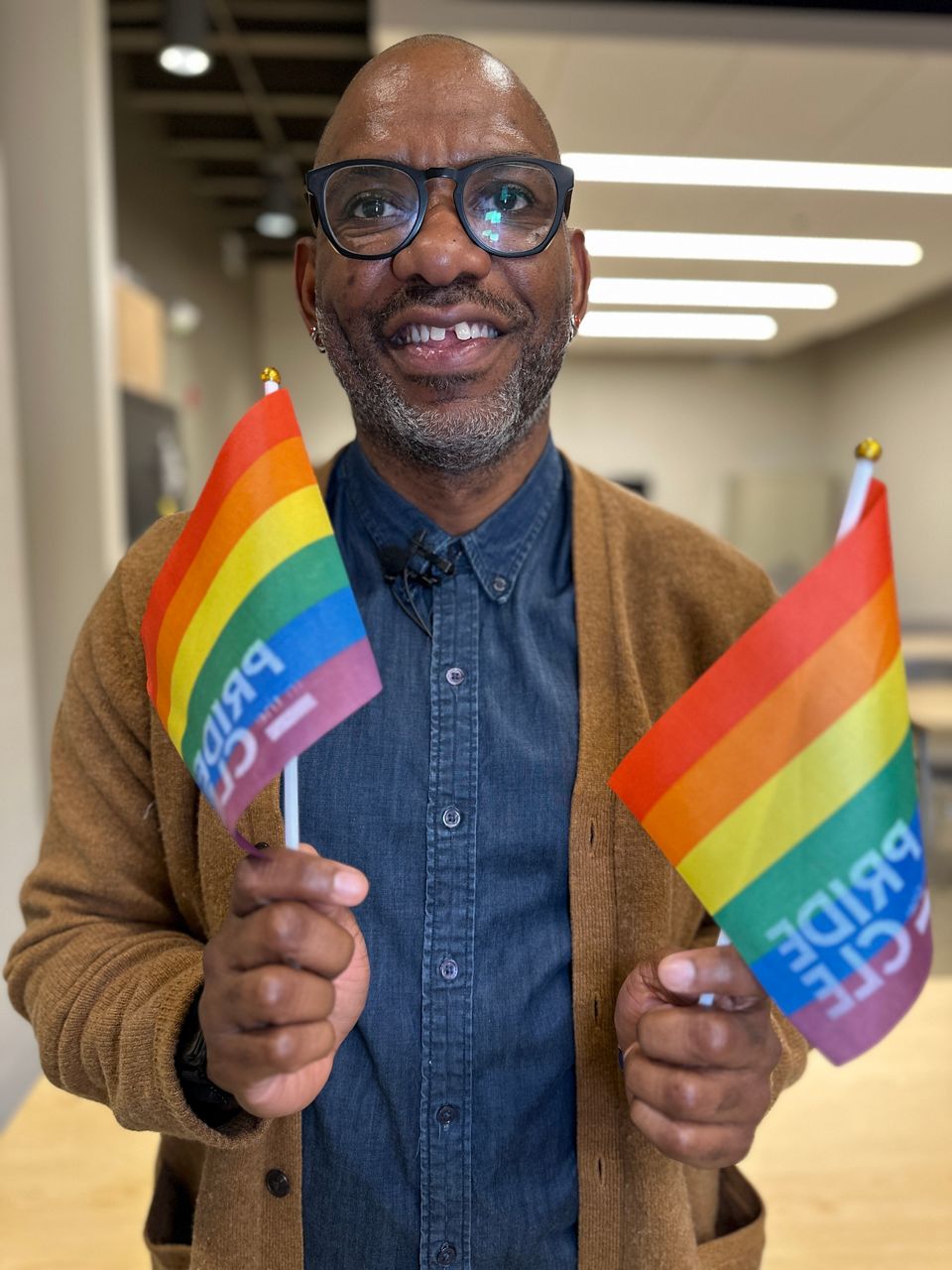CLEVELAND — For nearly 40 years, sexually active gay and bisexual men have not been allowed to donate blood.
Kenyon Farrow, a writer, activist and board chair for the LGBT Center of Greater Cleveland, knows the restrictions all too well.
“I was not allowed to donate blood to my father, who was in the hospital for leukemia back in 1997,” Farrow said.
His father died a few months later.
“I don't know to this day whether or not, you know, me being able to donate, you know, my blood platelets to him would have been a factor because no one else was a match,” he said.
When anyone donates blood to organizations like the Red Cross it is tested for blood-borne diseases like hepatitis and HIV.
“And that test is the same test for any person, right, regardless of their sexual orientation or gender identity,” Farrow said. “And yet gay men are the only people who are held to a particularly high standard.”
More than 1.1 million people in the U.S. are living with HIV, according to the CDC. In the U.S., the first cases of HIV, which is the virus that can cause AIDS, were reported in 1981. Because the virus affects gay and bisexual men more severely than any other group in the U.S., men who have sex with men (MSM) were permanently deferred from donating blood in 1983.
The permanent deferral changed in 2015, when gay and bisexual men who have had sex of any kind with another man could donate blood after a year of celibacy. In 2020, during the pandemic, the restrictions changed to three months. Now, the FDA is proposing a new blood donation policy based on individual sexual behavior, instead of someone’s gender or sexual identity.
The new proposal comes after Vitalant, OneBlood and the American Red Cross partnered with LGBTQ centers throughout the country to conduct the ADVANCE study, which stands for Assessing Donor Variability And New Concepts in Eligibility. The FDA funded the study, which concluded in Sept. 2022, providing the FDA with the data necessary to refine its blood donation policy.
“I think that this is a wonderful thing,” said Claudia Cohn, the Chief Medical Officer for the Association for the Advancement of Blood and Biotherapies, also known as AABB.
AABB is an international nonprofit that oversees all aspects of safety for blood collection. Cohn said the proposed changes to the guidelines no longer target gay men, they target anyone who has anal sex with new or multiple partners, no matter your gender. Under the proposed guidelines, gay and bisexual men who are in monogamous relationships could donate blood without having to abstain from sex.
“There's going to be a new question on the donor history questionnaire when you go to donate blood,” Cohn said. “Have you had a new partner in the last three months? If you would answer yes then you will be asked a secondary question. Have you had anal sex with that partner or with a new partner and if yes, you are deferred for three months. If you answer no, then you may donate.”
Cohn said the move is aimed at addressing criticism that the current policy is discriminatory while also helping to alleviate a nationwide blood shortage.
“It is so exciting to me as someone who is constantly asking people to donate blood, that we have a population, the MSM population who want to donate blood,” Cohn said. “That's tremendous to me.”
LGBTQ groups have advocated for this type of policy change for years. Farrow thinks part of the reason the U.S. took so long to propose new changes stems from fear and homophobia.
“I think a lot of it is fear, you know, certainly and, then also you have, you know, a situation where a lot of times at the research level, you know, especially federally, you know, the research gets politicized,” Farrow said.

While the proposed policy would remove a decades-long barrier for many in the LGBTQ community, Farrow said there’s still more to be done.
“Even just taking the word gay out of the policy, but kind of putting these sort of strictures in still disproportionately mean that gay and bisexual, other men who have sex with men, won't be able to donate blood still is discrimination at the end of the day,” Farrow said.
The Human Rights Campaign (HRC), the nation’s largest LGBTQ civil rights organization, said in a statement that the proposed new policy still requires refinement. In the proposed policy, blood donation deferrals will remain in effect for people who rely on pre-exposure prophylaxis, or PrEP, to avoid blood recipients from contracting HIV because existing research shows that, in some cases, PrEP can obscure HIV positivity. However, PrEP is highly effective for preventing HIV as it reduces the risk of getting HIV from sex by about 99% when taken as prescribed, according to the CDC.
Yet, Farrow said it’s progress. He hopes others won’t have to experience the pain he went through witnessing his father die, knowing he wanted to help, but was ultimately denied.
“I really hope that, you know, we don't have too many more scenarios like the one I experienced in 1997 happening in 2023,” Farrow said.
The proposed policy change is subject to a 60-day public comment period, then revision by the FDA. Blood centers would then need time to adopt the new assessment tools before the policy could go into effect. Cohn said it would likely be six to seven months before we see a change. Currently, men who have sex with men cannot donate blood unless they do not have sex of any kind for three months.
To learn more about the proposed changes, click here.
Correction: A previous version of this article incorrectly named the LGBT Community Center of Greater Cleveland. The name was corrected. (Feb. 13, 2023)



